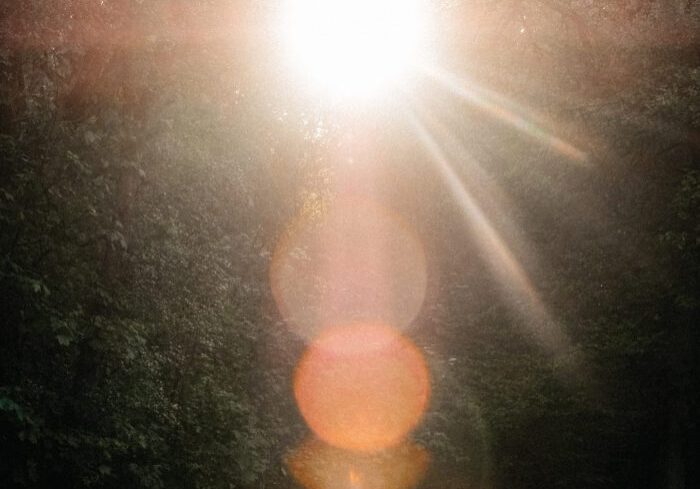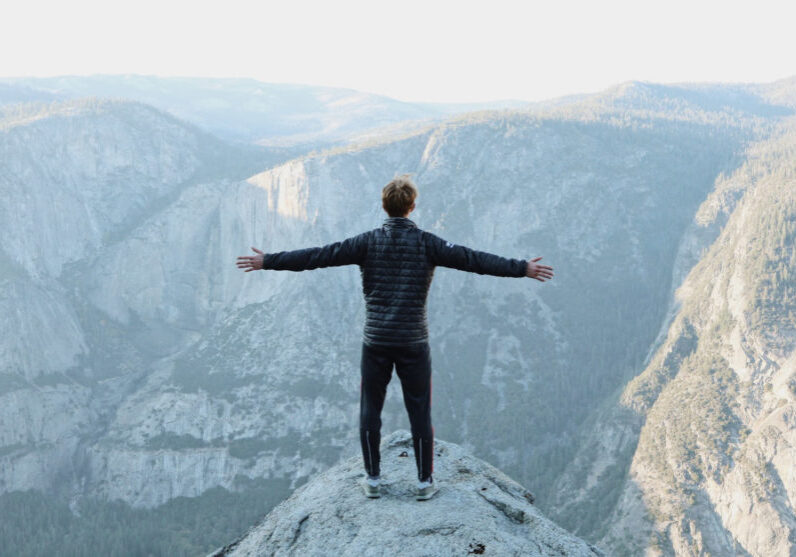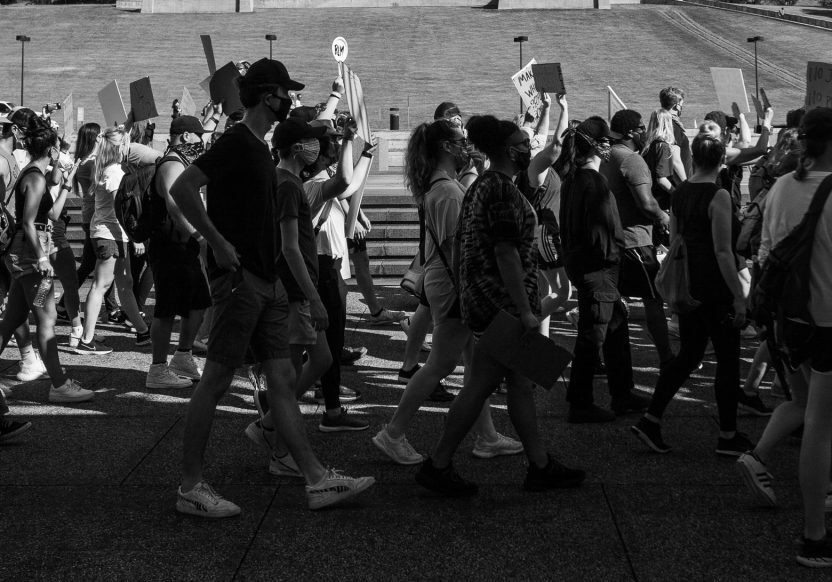Eucharist as Entanglement
Question: “I would like to understand more clearly the place of the Eucharist in relation to your effort of the relationship between science and faith.”
 Robert: It was the fifth-century philosopher-theologian Augustine who furnished us with a profound connectivity between the church and Eucharist. He called the Eucharist the “sign of unity, the bond of love.” This maxim was especially important to both Bonaventure and Thomas Aquinas who sought to give future direction to Eucharist, a more comprehensive application that recovers and renews the essence of the Gospel and the wisdom of the early Church Fathers. Rather than a single-minded preoccupation with the sacramental presence of Christ—an intermediary reality—these astute men emphasized the notion of res et sacramentum, namely, a “thing” that serves to point beyond itself to the “real thing.” As the sacrament of unity, in other words, the Eucharist is the sign and instrument that reinforces our ultimate aim; it brings into focus that real thing which has yet to reach complete actualization: the wholly conscious unity of God, person, and world, the full burgeoning of the Body of Christ.
Robert: It was the fifth-century philosopher-theologian Augustine who furnished us with a profound connectivity between the church and Eucharist. He called the Eucharist the “sign of unity, the bond of love.” This maxim was especially important to both Bonaventure and Thomas Aquinas who sought to give future direction to Eucharist, a more comprehensive application that recovers and renews the essence of the Gospel and the wisdom of the early Church Fathers. Rather than a single-minded preoccupation with the sacramental presence of Christ—an intermediary reality—these astute men emphasized the notion of res et sacramentum, namely, a “thing” that serves to point beyond itself to the “real thing.” As the sacrament of unity, in other words, the Eucharist is the sign and instrument that reinforces our ultimate aim; it brings into focus that real thing which has yet to reach complete actualization: the wholly conscious unity of God, person, and world, the full burgeoning of the Body of Christ.
An unnamed Zen master once remarked: “The purpose of life is to see.” What did Bonaventure see concerning this Body of Christ? He saw that the entire universe was oriented toward the building up of Christ. In one of his sermons, he writes of this intrinsic inter-relation between creation and Incarnation:
Christ shares his existence with each and every thing: with the stones he shares existence, with the plants he shares existence; with the animals sensation […] all things are said to be transformed in Christ since in his human nature he embraces something of every creature in himself when he was transfigured.[1]
For Bonaventure, that real thing was the very heart of existence, and Eucharist was the ongoing celebration of the holiness and wholeness of creation itself. As the fruits of nature sustain our lives, they communicate the deep embrace of God’s life to us. The sacramental imagination, therefore, recognizes these earthly elements, in all their innumerable permutations, symbolized in the bread and wine of the Eucharistic ritual.
In our age, how are we to see that real thing as the heart of existence? How might Eucharist be understood more cogently given what we know about the Body of Christ today? Like Aquinas and Bonaventure, how might we recover and renew a wider sense of the holiness and wholeness at the center of our reality? The observations of twentieth century science, particularly Albert Einstein’s theory of special relativity and the physical phenomenon of quantum entanglement, are helpful to this discussion.
Energy, the physicists tell us, is the stuff of life, and this stuff is indivisibly and indeterminately whole all the way down to its roots (the quantum level of existence). We live in an evolutionary world of energetic wholeness and this wholeness is deepened by the growth of attraction, the maturation of consciousness, and so steadily enhances that special focus on that real thing—that divine center of life reaching for totalization through the mystical Body of Christ, a cosmotheandric—God, person, world—reality. This primordial relatedness—this deep communion—enables us to speak about Eucharist as the signification of the whole of reality. In this way, we might consider Eucharist in terms of quantum entanglement, or non-local action at distance.
The concept of entanglement is used to describe the interaction between particles. Once two particles interact, for instance, they are mysteriously and eternally bound together; they each affect the other “directly and reciprocally despite spatial distance.”[2] As baptized persons, we are incorporated into a specific type of existence—an existence that helps us more clearly see the power of Christic life that lives on in the core of the universe, the one who is seeking greater concrete expression through the celebration of the Eucharist, through the communal acknowledge of the holiness and wholeness of life. Ilia Delio explains:
The eyes of the baptized are called to see Christ as the innermost center of the universe and to sacramentalize this reality through the celebration of the Eucharist. […] Jesus’s ‘Do this in memory of me’ are words of entanglement, saying that my life affects your life, and your life affects my life—we are mutually and reciprocally related. […] Eucharist means being an active participant in the cosmic body of Christ, a body evolving unto fullness, the cosmic Person, through the rise of consciousness and unity in love.[3]
This enriching perspective once again gives us a future direction in which to take our sacramental theology. It inaugurates new implications of Eucharist that simultaneously requires a new level of consciousness—persons who must live in ways that are reflective of the life of Christ, who seek to advance love, compassion, peace, and forgiveness in every circumstance. Delio writes: “A eucharistic community is a morphogenetic field—[energized patterns of relationships drenched with divinity]—of gospel values; that is, the community itself has a way of relating that reflects the life of Jesus. As new members engage in the community, the pattern widens and the bonds deepen so that a field of resonance strengths, making it possible for others outside the community to tap into the gospel values.”[4] These attitudes and actions help us to see that real thing rising up in increasing transparency and so contribute to the co-completion of the wholly conscious unity of our cosmotheandric reality (the Body of Christ in formation).
Notes:
[1] Bonaventure, Sermon IX, trans. Zachary Hayes, “Christ Word of God and Exemplar of Humanity,” The Cord 46/1 (1996), cited in Ilia Delio, The Hours of the Universe: Reflections on God, Science, and the Human Journey (New York: Orbis Books, 2021), 74.
[2] Ilia Delio, Making All Things New: Catholicity, Cosmology, Consciousness (New York: Orbis Books, 2015), 85.
[3] Ibid., 87.
[4] Ibid., 87.
 View print-friendly version
View print-friendly version
6 Comments
Related Posts

A Whiteheadian Response: The God of Persuasion
Question: “Please help me to further understand, I thought that God did not direct our lives. We made choices, those choices CREATED—God’s presence is in the creation of the choice…


As usual, Robert, a superb, clear and “evolutionary” article that draws us forward.Thank you! I resonate with all you write. My comment raises the question of “body and blood”. I noted your use of bread and wine as sacramental signs. I get it. I ask myself if “body and blood” is a matter of faith, mystery or an ancient Jewish cultural “sacrifice” phenomenon carried forward by Gospel writer? It surely is an obstacle to growing into a wider awareness of the richness of Eucharist you have developed so well. I guess I’ll “Do no now seek the answers….live the questions” as Rilke advises,
It never ceases to amaze me when educated individuals refuse to think beyond their comfort zone. Integral complexity is required for the church, ANY church of ANY denomination to strengthen and exist.
There use to be a commercial with the phrase, ” oh it’s in there!” So it is with the Eucharist and Communion. As the priest, for Catholics, repeats in monotone,
” Body of Christ….Body of Christ”, no where have we been introduced to the ENERGY OF LIFE!
As per usual, we only know the pointing finger – not the Moon.
WE mould the future. To change the future we must know and love the “moon”. The Christ.
Kay J
for your next commentary, how about Death as christophany? Thank you, Robert.
Eucharist is “Thanksgiving in Kairos”
This is an interesting article and the concept can certainly be applied on in an interdenominational way I suppose, not positive about interfaith. For me, as an Anabaptist, there are no particular “sacraments” of the church. It is our perception that life, the entanglement itself is the sacrament. However, there is definitely some common ground between your Eucharist and our communion when we are called to following the way of Jesus.
Wow! Thank you Robert for a lucid, informative article helping us to ‘detangle’ some of the entanglement mystery.
Be well. Keep rising.